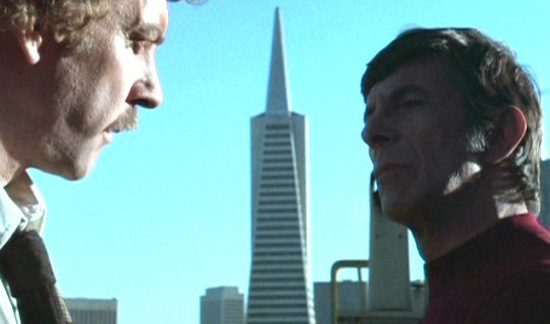Of the three versions of Invasion of the Bodysnatchers, a story about enemies secretly living among us, Philip Kaufman’s 1978 version was the one that had the weakest sociological context to play off of. The 1956 original was made in the age when McCarthy and HUAC were conducting a witch hunt for alleged communists in our midst. The 2007 version was filmed in a time when terrorist sleeper cells were a reality. So why is Kaufman’s version, which largely is a satire about the rather mundane evil of the self-help industry, so much more effective than the others? Sometimes talent trumps context.
The Kaufman version stars Donald Sutherland as Matthew Bennell, a San Francisco Health Department inspector who spends his days making surprise visits to restaurants, trying to differentiate between capers and rat turds. His staid life in interrupted when his secret office crush, Elizabeth Driscoll (Brooke Adams), begins having problems with her boyfriend. The thing is, Elizabeth doesn’t only feel that her beau has changed suddenly and drastically, but that people all over San Francisco are becoming emotionless and creepy overnight. Matthew doesn’t agree initially but is forced to see her point after a number of shocking occurrences. Meanwhile, a personal-growth guru (Leonard Nimoy) uses feel-good palaver to try to calm every one down as the city falls into chaos. “You will be born again into an untroubled world,” Matthew is ominously told at one point, and he and Elizabeth and their friends realize they have to run for their lives before they too are transformed into drones.
Kaufman and cinematographer Michael Chapman, who would soon work his magic on Raging Bull, use San Fran’s quirky beauty to amazing advantage: every sloping sidewalk seems sinister, steam in an old dry cleaner becomes a fog of suspicion, each exotic flower doubles as a weapon. What results is one of the best genre pictures ever made, and one that wisely knows that paranoia knows no particular season and the fear that things aren’t what they appear to be never goes out of style.•
Tags: Brooke Adams, Donald Sutherland, Joseph McCarthy, Leonard Nimoy, Michael Chapman, Philip Kaufman

